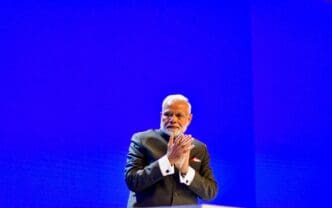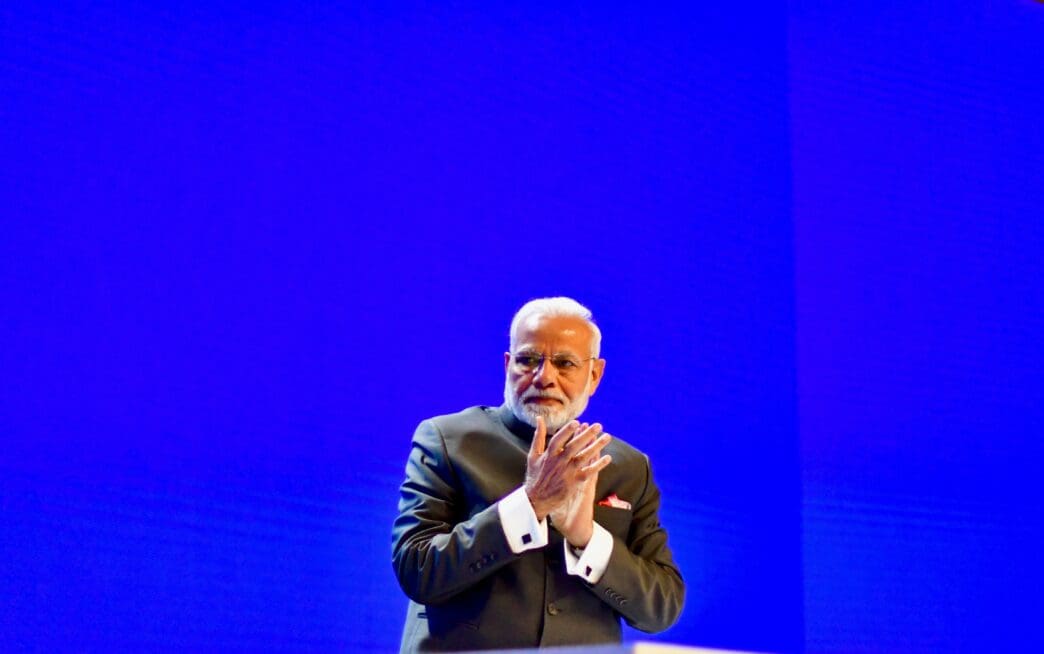Executive Summary
- President Trump claimed India agreed to halt Russian oil imports, a statement directly disputed by India’s foreign ministry spokesperson.
- India continues to be a top buyer of discounted Russian oil, prioritizing its energy security and economic needs despite US pressure and sanctions against Russia.
- Analysts indicate that India cannot abruptly stop importing Russian oil due to the massive volumes involved and the logistical challenges of replacing such supplies.
The Story So Far
- India, a significant energy importer, has maintained purchases of discounted Russian oil since the 2022 invasion of Ukraine to meet the demands of its rapidly growing economy and large population, despite consistent pressure from the United States to cease these imports as part of its broader sanctions against Russia. This commitment to securing stable and affordable energy supplies, prioritizing its national interests, explains the ongoing diplomatic friction over President Trump’s assertions regarding India’s import policies.
Why This Matters
- The public dispute over President Trump’s claim regarding India’s commitment to halt Russian oil imports underscores ongoing diplomatic friction between the two nations and highlights India’s firm prioritization of its energy security and economic interests. This incident also reveals the practical limitations of US pressure to isolate Russia, as India cannot easily replace the substantial volumes of discounted Russian oil, suggesting continued challenges in altering global energy trade dynamics.
Who Thinks What?
- President Donald Trump asserted that Indian Prime Minister Narendra Modi had assured him India would cease purchasing Russian oil, describing it as a “big step” in line with US sanctions against Russia.
- India’s foreign ministry spokesperson stated he was “not aware of any conversation” about such an assurance, emphasizing India’s status as a “significant importer of oil and gas” committed to “stable energy prices and secured supplies” through diversified sourcing, and has maintained its purchases from Russia.
- Oil analysts like Muyu Xu believe India cannot abruptly stop buying Russian oil due to the extremely large volumes involved (1.7 to 1.8 million barrels per day), which would be logistically challenging and difficult to replace from the spot market.
India’s foreign ministry has disputed President Donald Trump’s assertion that New Delhi agreed to halt its imports of Russian oil, signaling ongoing friction between the two nations over the issue. Trump claimed on Wednesday that Indian Prime Minister Narendra Modi had “assured” him that India would cease purchasing Russian oil, a move India’s foreign ministry spokesperson stated he was “not aware of any conversation” about.
Trump’s Claim and India’s Rebuttal
President Trump stated that Prime Minister Modi had given him a direct assurance that India would “not be buying oil from Russia,” describing it as a “big step.” This declaration came amidst US sanctions against Russia’s oil industry following its 2022 invasion of Ukraine.
However, on Thursday, Randhir Jaiswal, spokesperson for India’s foreign ministry, told reporters he was “not aware of any conversation” between Trump and Modi regarding such an assurance. Earlier the same day, the ministry released a statement emphasizing India’s status as a “significant importer of oil and gas” and its commitment to “stable energy prices and secured supplies” through diversified sourcing.
India’s Energy Policy and Russian Imports
India has maintained close ties with the Kremlin and has emerged as one of the top buyers of Russian oil since the 2022 invasion, leveraging discounted prices. New Delhi has consistently resisted US calls to cease these purchases, citing the energy needs of its rapidly growing economy and population of over 1.4 billion people.
The US has previously applied pressure, with President Trump announcing an additional 25% tariff on India in August as a penalty for its continued import of Russian oil and gas, building on an existing tariff rate.
Feasibility and Market Dynamics
Muyu Xu, a senior oil analyst at trade intelligence firm Kpler, highlighted the logistical challenges of India abruptly halting Russian oil imports. “I don’t think India can stop buying Russian oil overnight. The volumes are simply too large,” Xu stated, noting that Russia supplied approximately 1.7 to 1.8 million barrels per day to India during the first nine months of the current year.
Replacing such substantial volumes from the spot market would be a significant undertaking, complicated by differences in crude quality and refinery yields. While Kpler data indicates some state-owned refiners have recently trimmed Russian purchases, certain private players have increased their intake of Russian barrels.
Diplomatic Landscape
Prime Minister Modi’s stance on prioritizing India’s national interests aligns with his political brand as a strong leader on the global stage. Despite the current diplomatic friction, officials from New Delhi and Washington have engaged in recent weeks to improve relations, including trade delegations aimed at resolving outstanding issues.
Indian foreign minister S. Jaishankar acknowledged earlier this month that India “has issues with the United States,” attributing a significant portion of this friction to unresolved trade negotiations. He affirmed that both countries are actively working to find solutions through discussion and negotiation.
Key Takeaways
The conflicting statements underscore the complex geopolitical and economic pressures influencing global energy markets and international alliances. India’s commitment to securing its energy supplies, coupled with its strategic relationship with Russia, continues to pose a challenge to US efforts to isolate Moscow economically.








